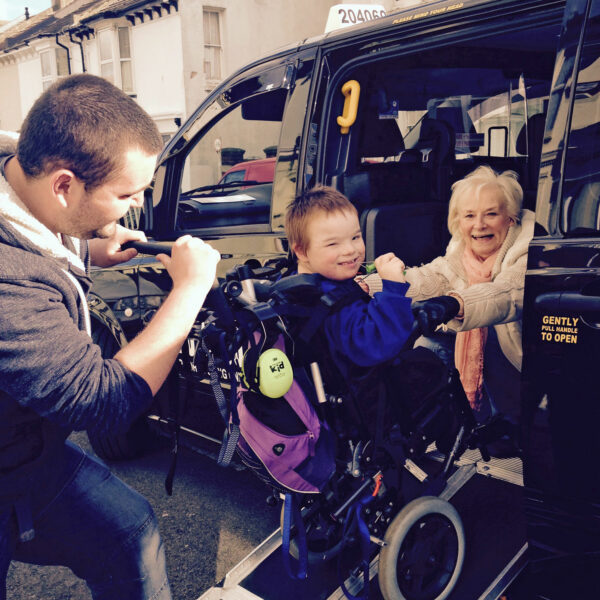Health issues in school
How families and education settings can work together to support children with health conditions, medical needs or disabilities in school or college.
Medical needs, SEND or both?
If your child has a health condition, their medical needs may have to be taken into account in their education. This could be because they need medication or treatment during the day, or personal care, or a plan for health emergencies. Their health may affect their attendance, or they may need adjustments to the school day and activities so they can participate without it affecting their health and wellbeing.
Schools have particular responsibilities for children who have health needs which we explain below.
Many children with long-term health conditions will count as disabled under the Equality Act. If so, their early years setting, school or college will need to make arrangements to ensure that they can access education without significant disadvantage. See our section on Rights, voice and decision making for more about this.
Some children and young people with health needs will be considered to have special educational needs (SEN) that should be met through SEN Support or an Education, Health and Care Plan (EHCP). This is if their health affects their learning so:
- they have significantly greater difficulty in learning than most other children of the same age, or
- they have a disability which makes it difficult for them to use the facilities normally provided for others of the same age in mainstream schools or post-16 institutions.
You can find out about SEN support and EHCPs in our section on Education.
What must schools do around medical needs?
State funded schools have a duty set out in The Children and Families Act 2014, to “make arrangements for supporting pupils at the school with medical conditions.” There is government guidance that sets out what this means in practice
This law and guidance only apply to state funded schools. Early years settings, independent schools and further education colleges do not have to follow this guidance. They will have their own policies and procedures, but Disability Discrimination duties will also apply if your child’s needs are long term and affect them sufficiently to be considered a disability.
The guidance makes it clear that pupils at school with medical conditions should be properly supported so that they can learn but also take part in and enjoy all aspects of school life, including school trips and PE. It recognises that children may need ongoing support, medicines or care while at school to help them manage their condition and keep them well, and that some will need monitoring and interventions for health emergencies. Schools must work with health services to make this happen and the school nurse linked to your school should be a source of advice for you and the school. Schools should have a policy that you can ask to see but should also make individual and flexible arrangements for children.
The guidance recommends putting these individual arrangements into an Individual Healthcare Plan, unless they are very straightforward.
Working with schools around medical needs
First step in getting the right help will be speaking to the school, letting them know about your child’s medical needs and exploring how these may affect them at school. Schools may be familiar with some common conditions, but as parents you are likely to have much more knowledge yourselves and contact with the health professionals who have expertise.
The school may need to do a risk assessment and get staff trained ahead of your child joining or returning to school.
If your child needs medication during the day, the school needs to agree with you how they will store it and make a plan for staff to give it. Giving medication is not part of teachers’ conditions of service, so an individual teacher can refuse to give medication; support staff, however, can have giving medicine written into their contract. Parents should not be asked to come into school to give medication.
Individual Health Care Plans
An Individual Health Care Plan (IHCP) should set out:
- the child’s medical condition
- the help they need at school as a result, including emotional, educational and practical support
- who will provide this and any training they need to be able to do that
- permissions around medication
- arrangements for things like school trips
- what to do in an emergency
IHCPs are a vital tool for children with significant medical needs but they are not a legal document like an EHCP. There is no set process for how to draw up an IHCP or what sections it should have. Parents, school and health professionals should work together to write one to suit the individual child. Your child’s consultant may provide some advice. School nurses may help or a specialist nurse for children with some conditions e.g., epilepsy or diabetes.
The Health Conditions in Schools Alliance has a guide and a general template for IHCPs plus links to templates for specific conditions.
Children with medical needs may or may not also have SEN. If they have an EHCP, their individual healthcare plan should be linked or combined with the EHC plan.
Missing school due to ill health
If your child misses school due to medical appointments or they are unable to come in due to their health needs, you should not be penalised. But you will need to provide a GP note for longer absences.
If your child needs to have reduced hours for a period for health reasons, this can be agreed with the school but this should not be instead of making reasonable adjustments so they can attend full time. See our Amaze SENDIASS video about informal school exclusions and part-time timetables here.
Or visit our page about Suspensions and exclusions.
If your child is off for a longer period, 15 days or more, the school and local authority should arrange that they get education in another way. The local authority has a legal duty to provide suitable, full-time alternative education for children of compulsory school age who are unable to attend school due to illness, exclusion or otherwise. If they are in hospital this may be through a hospital education team, if they are at home, it may be home tuition. You will need medical evidence. You can read more about this in our section on Children not in school.
Get advice from Amaze
Our SENDIASS advice team can give you one to one advice on anything to do with education and your child or young person’s special educational needs and/or disabilities (SEND).





